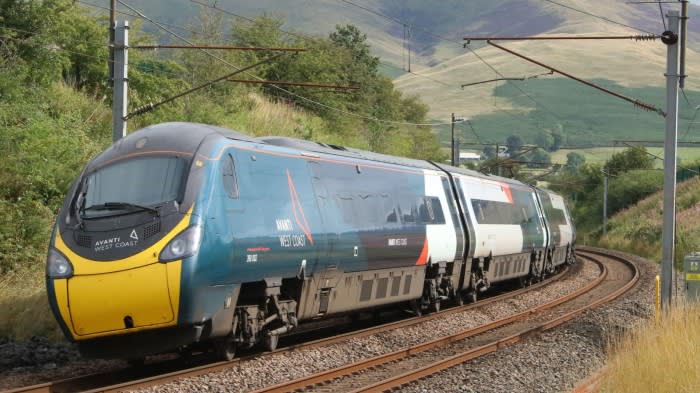Troubled intercity rail operator Avanti West Coast will not be stripped of its contract early by the UK government, according to people with knowledge of the plans.
Earlier this year, northern leaders demanded that operation of the route — which connects London with cities including Birmingham, Manchester and Liverpool — be nationalised because of sustained frustrations over performance.
Avanti was the worst-performing train operator in the UK between April and June, according to industry figures. Almost 60 per cent of its trains over the period were late, double the national average, figures from the Office of Rail and Road showed. Cancellation levels were also twice the national average.
However, legal advice provided to the Department for Transport concluded that the operator was not in breach of its performance obligations, people familiar with the findings said.
One of the people said the company’s most recent contract had been drawn up in such a way that it was very difficult to breach on performance grounds.
Transport secretary Louise Haigh said: “The Conservatives rewarded failure, handing Avanti a nine-year contract. And their shockingly low standards mean the contract is incredibly hard to breach — despite the operator’s woeful performance.
“We have pored over every line of the contract and sought legal advice . . . [and] we will bring Avanti into public ownership at the earliest possible opportunity.”
Since the contract is one of the last to come up for renewal, the route could end up being one of the last to be nationalised under Labour’s plans to gradually bring all rail services under state control.
Ministers are instead working on the basis that the first nationalisations will be Greater Anglia or West Midlands Trains early next year.
Earlier on Tuesday, Starmer championed the railway services bill “bringing railways back into public ownership” in his speech to the Labour conference in Liverpool.
Avanti, co-owned by First Group and Trentitalia, has been heavily criticised over the reliability and quality of its services since it took over the biggest intercity rail route in 2019.
Twelve months ago the Conservative government, following a brief period of improvement, extended its contract for nine years, with a break clause in 2026. Shortly afterwards, performance nosedived again.
In April, members of the pan-northern transport body Transport for the North unanimously voted for the service to be nationalised because of its sustained unreliability, slashed timetables and poor customer service.
Greater Manchester’s Labour mayor Andy Burnham said he had “completely run out of patience” with the operator.
At the time, the Department for Transport said that removing Avanti’s contract would not solve problems that it said were caused by issues beyond the company’s control, such as the weather and infrastructure problems.
Three months later, Labour were elected on a promise to gradually nationalise all of the network as each operating contract expired.
Two people with knowledge of the matter said the earliest end date was likely to be 2027, once a break had been executed.
The government is expected to begin its broader nationalisation process when the Passenger Railway Services bill receives Royal Assent, expected later this year.
Under the bill, contracts to run train operators let to private companies will be permanently returned to the government as they expire.
These former franchises would then be run by the Department for Transport’s “Operator of Last Resort”, which already operates four English railway franchises on behalf of the government.
The first contract to expire will be South Western Railway in May 2025. But under the terms of the contracts with train operators, the government can also exercise break clauses to bring companies in-house earlier.

Break clauses at Greater Anglia and West Midlands Trains expired in September, so the government is set to begin the nationalisations after giving one of these operators, which are both run by TransportUK, the required three months notice.
A government official said that process was expected to start in February.
Industry executives believe ministers had been considering whether to start with a high-profile struggling operator, such as Avanti or Cross Country, which received an improvement notice in August.
But they said an easier option would be to bring in one of the Transport UK franchises first, which are both performing well.
Dominic Booth, chief executive officer of Transport UK, said the rail industry needed reform, but the government should target poorly performing operators.
“With the economy as it stands, we find it hard to believe the secretary of state would nationalise the only operator that delivers a premium to the Treasury instead of ending the subsidies currently being paid to poorly performing operators at the taxpayer’s expense,” he said.
Greater Anglia is the best-performing operator according to recent reliability data, and is the only operator returning a surplus to the government.
One industry executive warned that trying to nationalise several operators in a short timeframe was “a recipe for failure and risk”.
Trenitalia and First Group declined to comment. The Department for Transport and TransportUK did not immediately comment.


